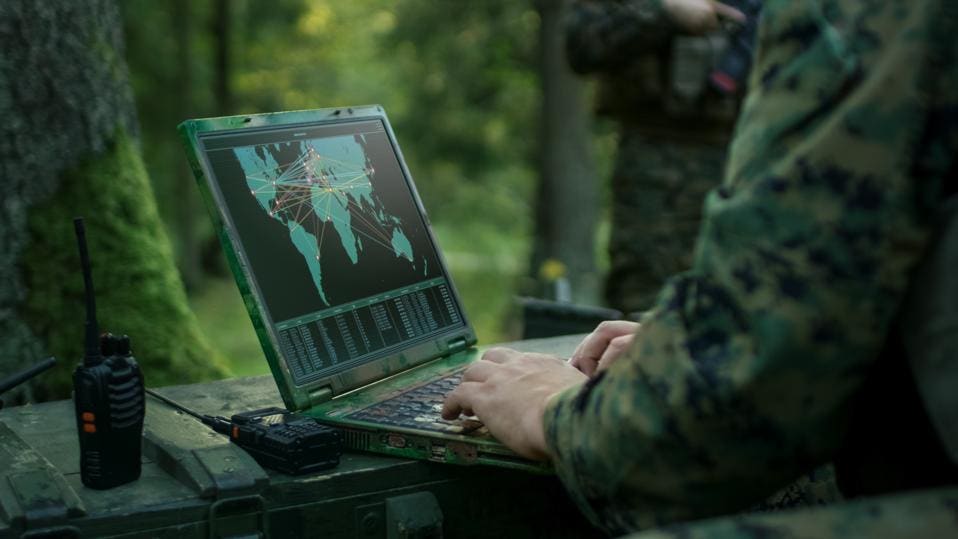In the rapidly evolving landscape of defense technology, the integration of artificial intelligence (AI) into military operations has become a focal point. The role of human oversight in military AI is paramount, as it ensures that ethical considerations and strategic decisions remain under human control. As we navigate this complex terrain, understanding the balance between autonomous systems and human judgment is crucial.

The Evolution of Military AI
The journey of AI in military applications has been transformative. From data analysis to autonomous drones, AI has revolutionized the way military operations are conducted. However, with great power comes great responsibility. The need for human oversight becomes evident as we delve deeper into the capabilities of AI in warfare.
Historical Context
Historically, military strategies have evolved alongside technological advancements. The introduction of AI marks a significant shift, akin to the development of radar or nuclear technology. Understanding this historical context helps in appreciating the current discourse on human oversight in military AI.
Current Applications
Today, AI is used in various military applications, from logistics and supply chain management to surveillance and reconnaissance. The integration of AI into these domains has improved efficiency and precision. However, the deployment of autonomous weapons systems raises ethical and operational questions, emphasizing the need for human oversight.
The Role of Human Oversight
Incorporating AI into military operations without adequate human oversight can lead to unintended consequences. Human oversight ensures that AI systems align with strategic objectives and ethical standards.
Ethical Considerations
The ethical implications of AI in military operations cannot be overstated. Decisions made by AI systems can have life-or-death consequences. Human oversight is necessary to ensure that these decisions adhere to international humanitarian laws and ethical standards.
Operational Control
Maintaining operational control over AI systems is critical. While AI can process vast amounts of data quickly, it is the human element that provides context and strategic direction. Ensuring that humans have the final say in critical decisions is vital for maintaining control over military operations.
Challenges in Implementing Human Oversight
Despite its importance, implementing effective human oversight in military AI presents several challenges. These include technological limitations, the complexity of AI systems, and the need for specialized training.
Technological Limitations
AI systems are not infallible. They can be susceptible to errors, biases, and vulnerabilities. Addressing these limitations requires robust oversight mechanisms and continuous monitoring.
Complexity of AI Systems
The complexity of AI systems poses a challenge to effective oversight. Understanding the intricacies of AI algorithms and their decision-making processes requires specialized knowledge and expertise.
Training and Education
Effective human oversight necessitates comprehensive training and education programs for military personnel. Equipping them with the skills to understand and manage AI systems is crucial for successful oversight.
Strategies for Effective Human Oversight
To ensure effective human oversight in military AI, several strategies can be implemented. These include establishing clear guidelines, enhancing transparency, and fostering international cooperation.
Establishing Guidelines
Developing clear guidelines and protocols for AI use in military operations is essential. These guidelines should outline the roles and responsibilities of human operators and define the limits of AI autonomy.
Enhancing Transparency
Transparency in AI systems is crucial for effective oversight. Ensuring that AI algorithms and decision-making processes are transparent allows for better monitoring and accountability.
Fostering International Cooperation
International cooperation is vital for establishing global standards and best practices for human oversight in military AI. Collaborative efforts can help address common challenges and promote ethical AI use in warfare. For more insights into AI’s role in modern warfare, visit AI’s Role in Modern Warfare.
The Future of Human Oversight in Military AI
As AI continues to evolve, the role of human oversight will remain crucial. Balancing AI’s capabilities with human judgment is essential for ensuring ethical and effective military operations.
Emerging Technologies
Emerging technologies, such as machine learning and quantum computing, will further enhance AI’s capabilities. Keeping pace with these advancements requires continuous adaptation of oversight mechanisms.
Ongoing Research and Development
Ongoing research and development in AI and military applications will shape the future of human oversight. Collaborative efforts between governments, industry, and academia are essential for advancing oversight strategies.
Public Perception and Acceptance
Public perception and acceptance of AI in military operations will influence the development and implementation of oversight mechanisms. Engaging with the public and addressing concerns is crucial for fostering trust and support.
Conclusion
In conclusion, the integration of AI into military operations presents both opportunities and challenges. Ensuring effective human oversight in military AI is essential for maintaining ethical standards and operational control. By addressing the challenges and implementing effective strategies, we can harness AI’s potential while safeguarding human values. For more information on AI’s impact on defense, visit Artificial Intelligence in Defense.

FAQs
What is the role of human oversight in military AI?
Human oversight ensures that AI systems align with ethical standards and strategic objectives, maintaining control over military operations.
Why is human oversight important in military AI?
Human oversight is crucial for ensuring ethical decision-making, maintaining operational control, and addressing the limitations of AI systems.
How can effective human oversight be achieved in military AI?
Effective human oversight can be achieved through clear guidelines, transparency, international cooperation, and comprehensive training for military personnel.

